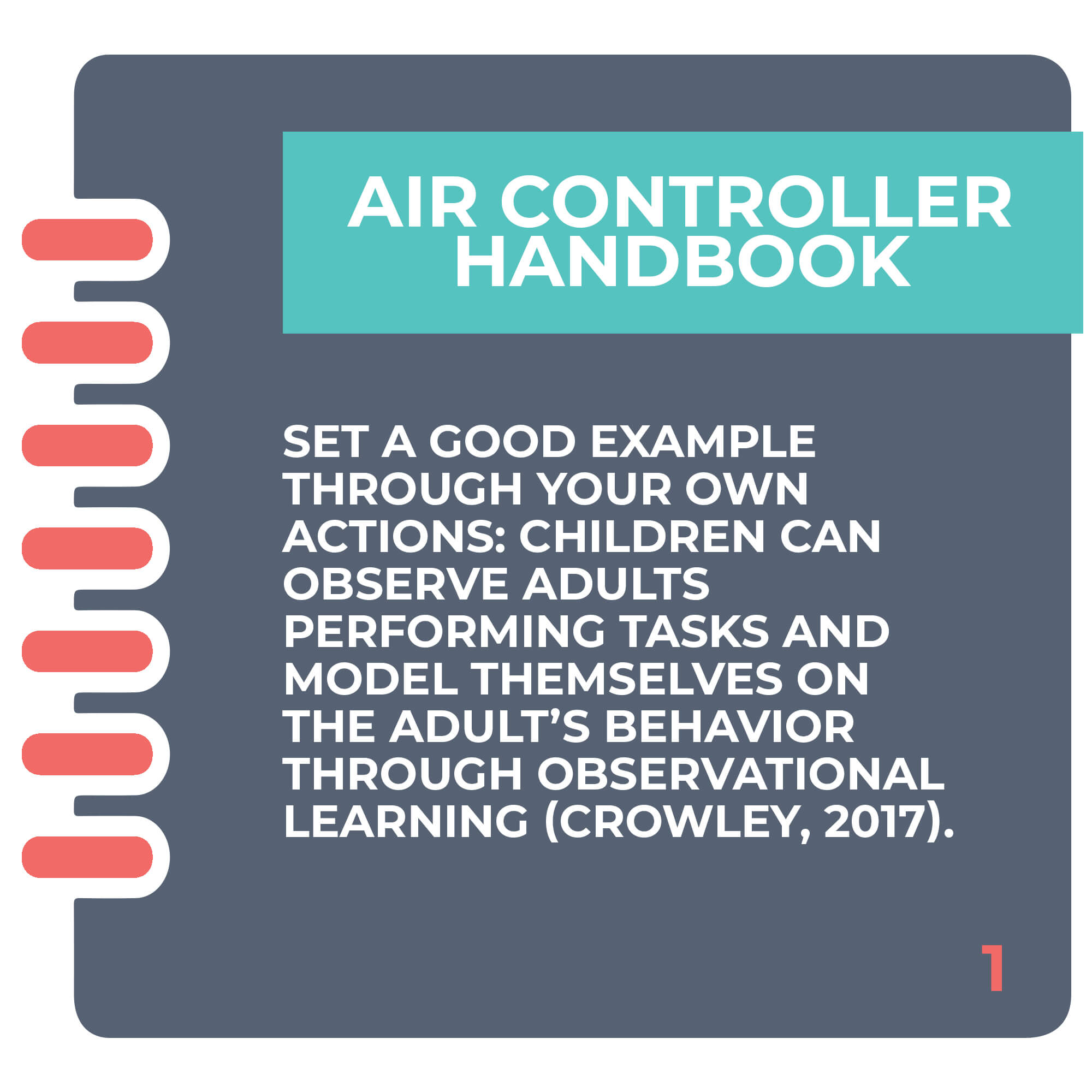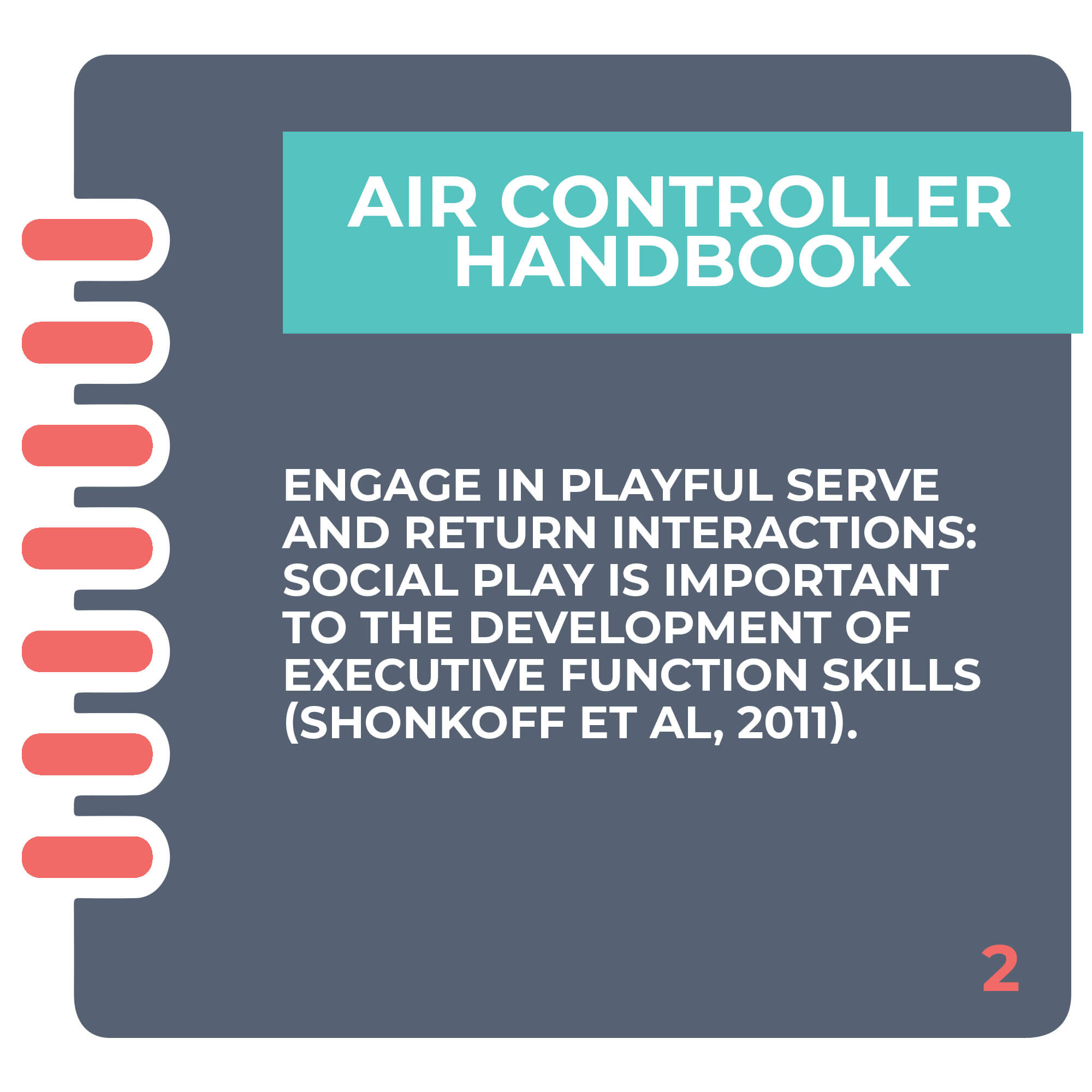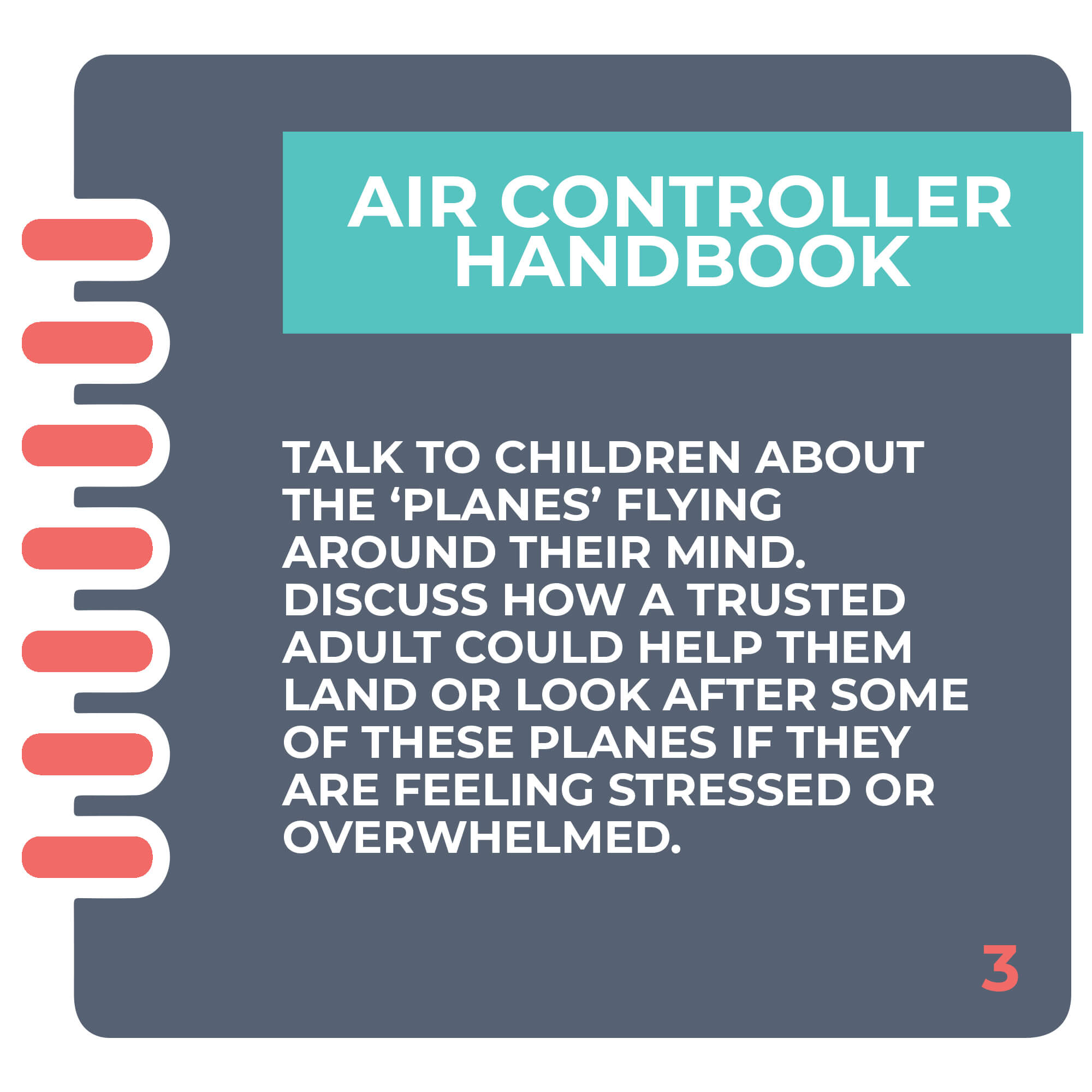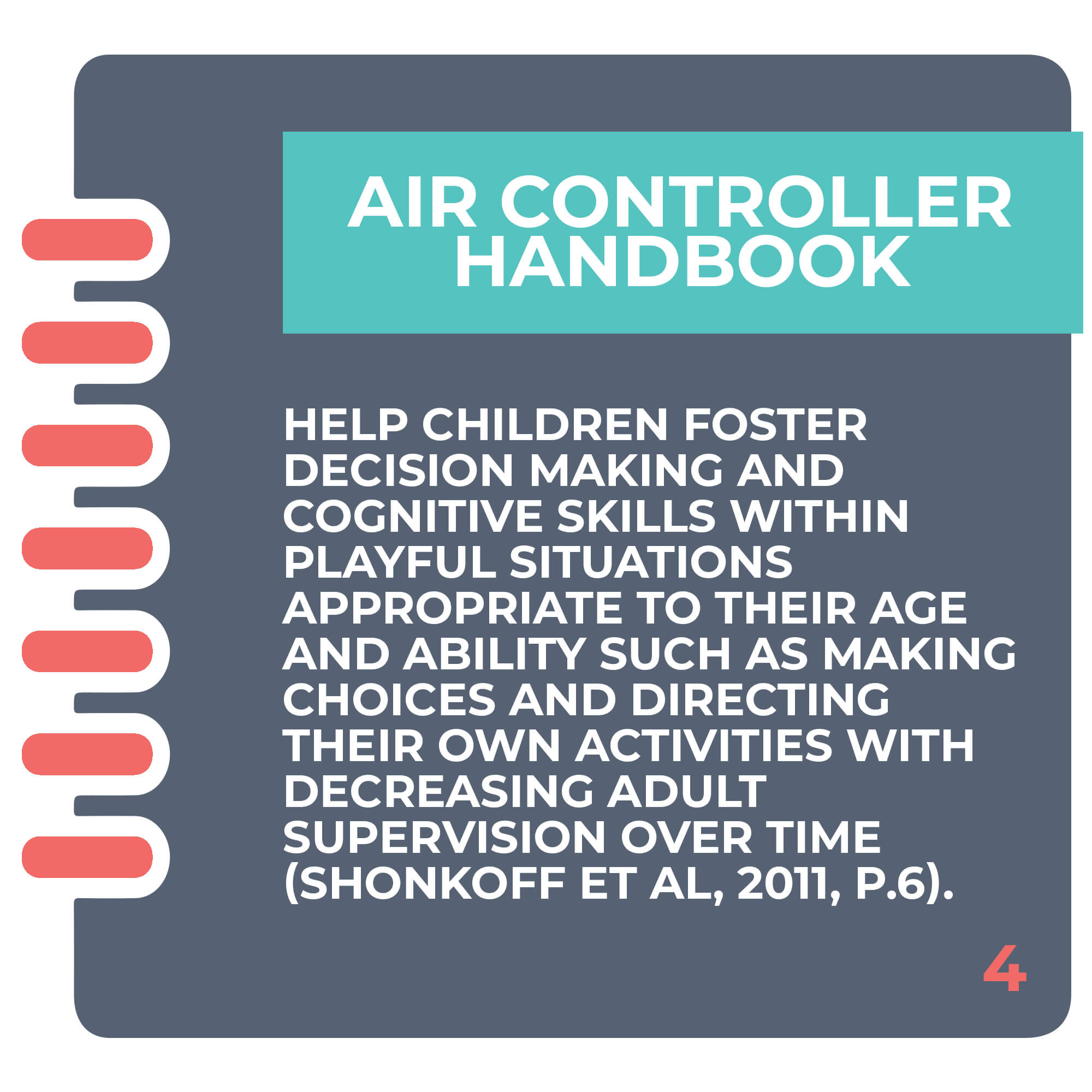Brain Story – Air Traffic Control
What do children and air traffic controllers have in common? Let’s get into it!

Children manage mental processes like an air traffic controller manages airplanes in an airport.
Every day, there are various demands on our attention, from paying attention and controlling impulses, to managing emotions and prioritizing tasks (Shonkoff et al, 2011).
With practice and support, children learn to organize and control the tasks in their mental headspace, like an air traffic controller organizes and lands airplanes in a busy airport (Shonkoff et al, 2011).
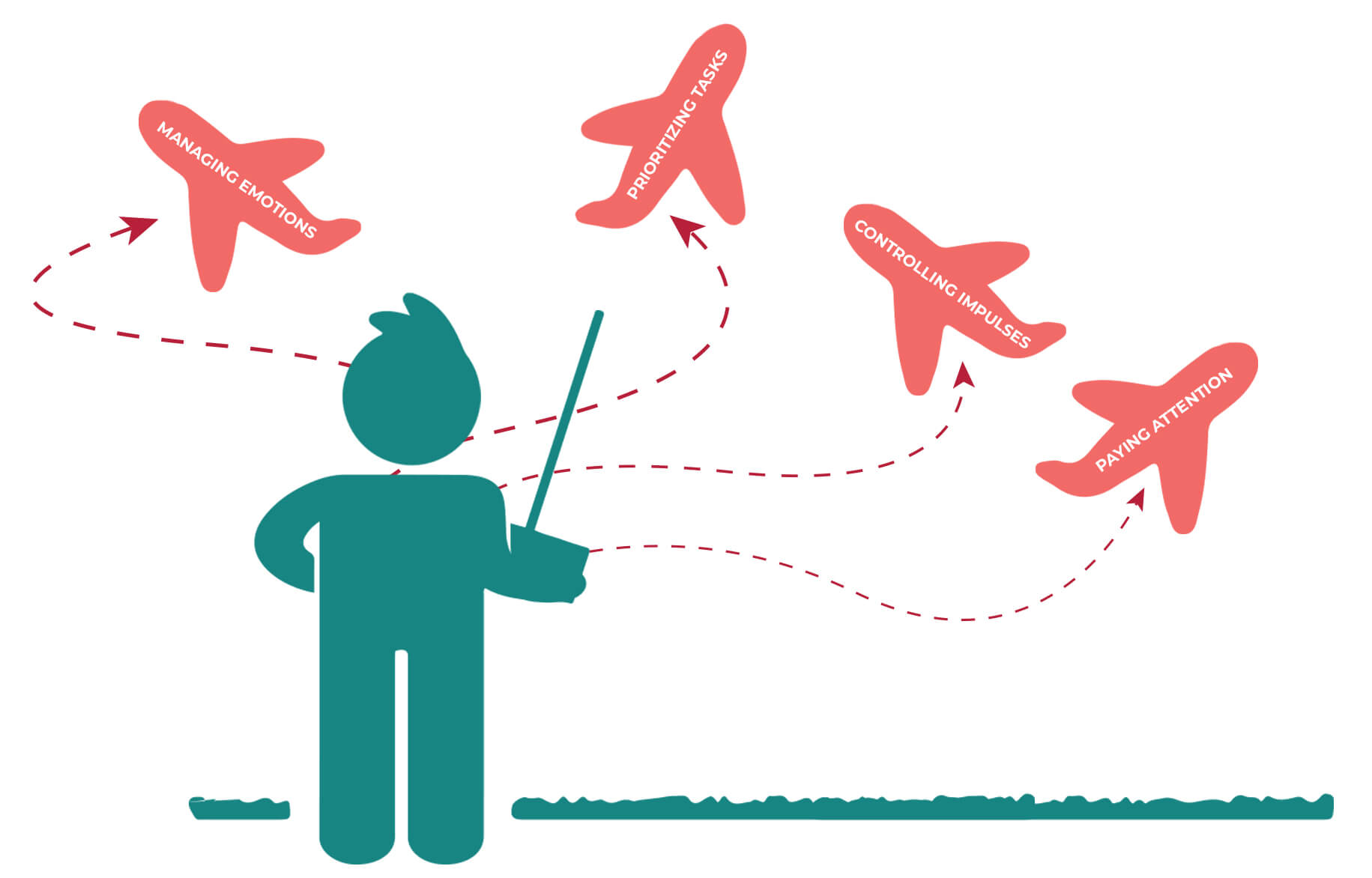
THE BRAIN’S ‘EXECUTIVE FUNCTION’
This system manages social and cognitive skills. Children depend on these emerging executive function skills as they learn to read and write, develop arithmetic skills and interact with peers (Shonkoff et al, 2011).
Although executive function skills can be improved at any time during and after childhood, adverse childhood experiences (ACEs), such as trauma and abuse, can hinder the brain’s cognitive development (Diamond, 2013).
Title
Title
This can weaken the child’s air traffic control system and may lead to:
- reduced impulse control
- weakened working memory and attention skills
- disruptive behavior
Just as an air traffic controller can learn to manage arriving and departing flights, children can learn to manage their mental processes through practice and support.
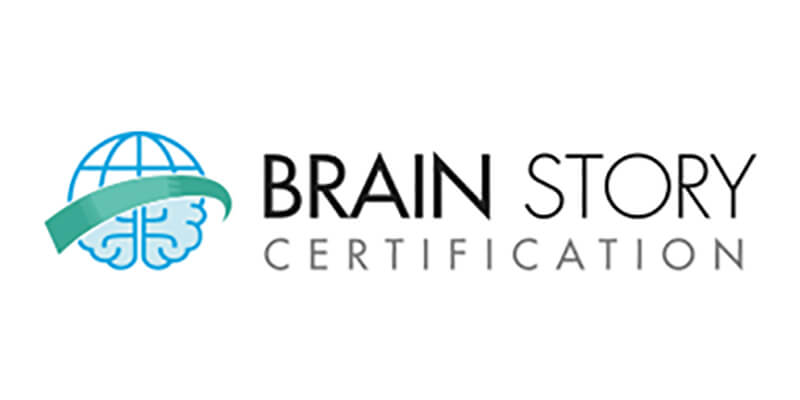
Get Brain Story certified!
The Brain Story Certification course is for anyone seeking a deeper understanding of brain development and its consequences for lifelong health. This self-paced online course is free and open to the public. The course is also designed for professionals seeking certification in a wide range of fields and includes 30 hours of instruction time.
References & Sources
- Center on the Developing Child (2013) Innovating in Early Head Start: Can Reducing Toxic Stress Improve Outcomes for Young Children? [Accessed 8/11/2019].
- Crowley, Kevin (2017) Child Development: a practical introduction. London: SAGE Publications Ltd.
- Diamond, A (2013) Executive Functions Annual Review of Psychology, 64: 135-168.
- Franke H.A (2014) Toxic Stress: Effects, Prevention and Treatment. Children, 1(3): 390–402.
- Kendall-Taylor, N and Stanley, K (2018) Seeing Context through Metaphor: Using Communications Research to Bring a Social Determinants Perspective to Public Thinking about Child Abuse and Neglect. International Journal of Environmental Research and Public Health, 15(1): 8-14.
- National Commission on Domestic and Sexual Violence and Multiple Disadvantage (2019) Breaking Down the Barriers (PDF). [s.l.]: National Commission on Domestic and Sexual Violence and Multiple Disadvantage.
- Siegel, D. J. and Bryson, T. P. (2012) The Whole-Brain Child 12 Revolutionary Strategies to Nurture Your Child’s Developing Mind, Survive Everyday Parenting Struggles, and Help Your Family Thrive. London: Robinson.
- Shonkoff, J.P. et al (2004) Young Children Develop in an Environment of Relationships. Cambridge: Center on the Developing Child, Harvard University.
- Shonkoff, J.P. et al (2008) The Timing and Quality of Early Experiences Combine to Shape Brain Architecture Working Paper 5. Cambridge: Center on the Developing Child, Harvard University.
- Shonkoff, J.P., Boyce, W.T. and McEwen, B.S. (2009) Neuroscience, molecular biology, and the childhood roots of health disparities: building a new framework for health promotion and disease prevention, Journal of the American Medical Association, 301 (21), 2252-2259.
- Shonkoff, J.P. et al (2011) Building the Brain’s “Air Traffic Control” System: How Early Experiences Shape the Development of Executive Function Working Paper 11. Cambridge: Center on the Developing Child, Harvard University.
- Shonkoff, J.P. et al (2014), Excessive Stress Disrupts the Architecture of the Developing Brain Working Paper 3. Cambridge: Center on the Developing Child, Harvard University.
- Shonkoff, J.P. et al (2015) Supportive Relationships and Active Skill-Building Strengthen the Foundations of Resilience Working Paper 13. Cambridge: Center on the Developing Child, Harvard University.
- Shonkoff, J.P. et al (2018) Understanding Motivation: Building the Brain Architecture That Supports Learning, Health, and Community Participation Working Paper 14. Cambridge: Center on the Developing Child, Harvard University.

